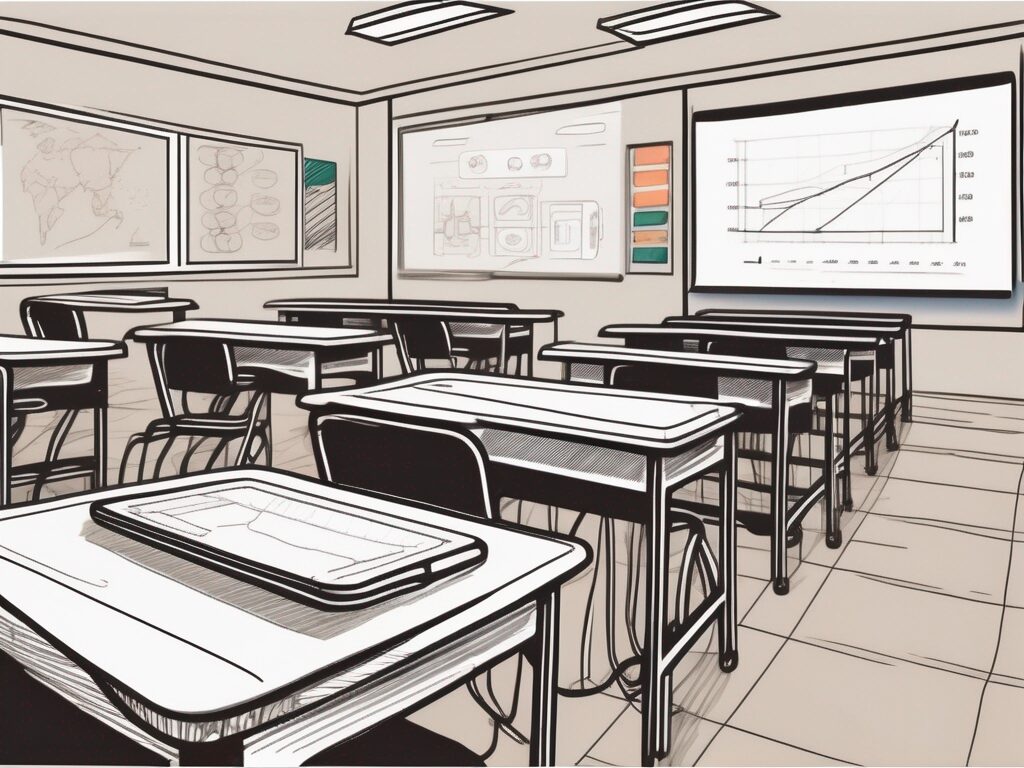The integration of technology in classrooms is a global trend that is rapidly transforming the educational landscape. Thailand, a country known for its rich cultural heritage and stunning landscapes, is no exception. The country is making significant strides in incorporating technology in its educational system, particularly through the use of Interactive Quality Teaching Strategies (IQTS). This article delves into four methods of how technology is being utilised in Thailand classrooms with an IQTS.
1. Interactive Whiteboards
Interactive whiteboards have become a staple in many classrooms around the world, and Thailand is no different. These high-tech tools provide a visually engaging platform for teachers to present information and facilitate interactive learning. With an IQTS, the interactive whiteboard becomes more than just a projection screen; it transforms into a dynamic learning environment where students can actively participate in the learning process.
For instance, teachers can use interactive whiteboards to display multimedia content such as videos, animations, and graphics, which can help to explain complex concepts in a more digestible manner. Students can also interact with the content on the board, such as dragging and dropping items, highlighting text, or drawing diagrams. This interactive element not only makes learning more fun, but it also encourages students to engage more deeply with the material.
2. Mobile Learning
Mobile learning, or m-learning, is another method that is gaining traction in Thailand classrooms. With the ubiquity of smartphones and tablets, learning is no longer confined to the four walls of a classroom. Students can access educational content anytime, anywhere, making learning a continuous process that extends beyond school hours.
With an IQTS, mobile learning becomes even more effective. Teachers can design interactive quizzes, assignments, and activities that students can complete on their mobile devices. This not only makes learning more engaging, but it also allows teachers to track students’ progress and provide immediate feedback. It’s akin to having a personal tutor at your fingertips, ready to assist you whenever you need.
3. Virtual Reality
Virtual Reality (VR) is a technology that is slowly making its way into Thailand classrooms. VR provides an immersive learning experience by creating a three-dimensional, computer-generated environment that students can explore. It’s like stepping into a new world, where learning becomes a thrilling adventure rather than a mundane task.
With an IQTS, VR can be used to simulate real-world scenarios that enhance students’ understanding of various subjects. For example, students can take a virtual tour of the solar system in a science class, or walk through the streets of ancient Rome in a history lesson. This experiential learning approach not only makes learning more engaging, but it also helps students to retain information better.
4. Learning Management Systems
Learning Management Systems (LMS) are software applications that are used for the administration, documentation, tracking, reporting, and delivery of educational courses. In Thailand classrooms, LMS are being used to streamline the teaching and learning process.
With an IQTS, an LMS becomes a powerful tool that enhances the learning experience. Teachers can use it to create a personalised learning path for each student, track their progress, and provide timely feedback. Students, on the other hand, can use it to access learning materials, submit assignments, and communicate with their teachers. It’s like having a virtual classroom that is accessible 24/7.
In conclusion, the integration of technology in Thailand classrooms with an IQTS is transforming the educational landscape. Interactive whiteboards, mobile learning, virtual reality, and learning management systems are just some of the methods that are being used to make learning more engaging, interactive, and effective. As technology continues to evolve, we can expect to see even more innovative methods being introduced in the future.
Advance Your Teaching Career with iQTS at UWE
As technology redefines educational paradigms in Thailand and beyond, the demand for qualified teachers with a deep understanding of interactive and global education systems is on the rise. The IQTS at UWE offers the International Qualified Teacher Status (iQTS) Programme, a Level 7 qualification designed to elevate your professional development. Overcome the barriers of stringent qualification requirements, enhance your career progression with a notable increase in promotion rates and salary, connect with a global network of professionals, and gain comprehensive insights into international curricula. Embrace the flexibility of online study tailored for working educators and become 65% more adaptable in diverse teaching environments. Make Your Next Step towards achieving excellence in your teaching career with iQTS at UWE.

